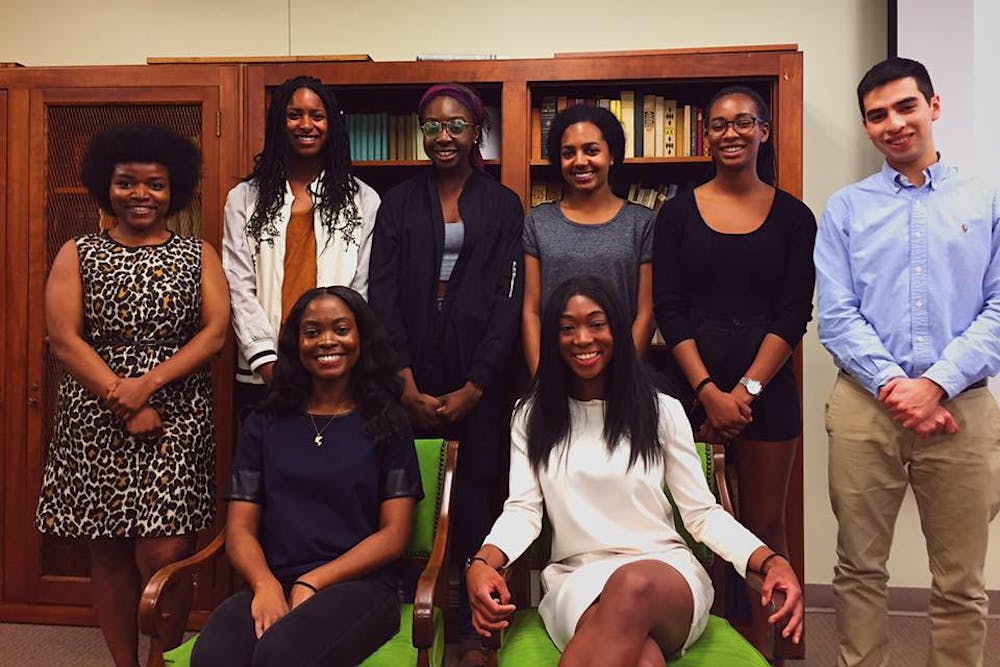
As the election for the City of Philadelphia's next district attorney began to heat up this past spring, the discussion of criminal justice reform became central both to the people of Philadelphia as well as to students at Penn.
And now that Democratic candidate Larry Krasner, who ran primarily on this progressive platform, has been elected to the post, the student group Beyond Arrest: Re-Thinking Systematic Oppression is continuing to bring Penn students into this movement.
Besides hosting on-campus meetings and speakers, BARS members volunteer with educational programs in prisons and publish a monthly blog about criminal justice. In September, BARS partnered with Penn Democrats to host an event, entitled "Ending Mass Incarceration: A Panel Discussion," with then-Democratic nominee Krasner on Penn's campus.
BARS Co-President and College junior Madison Dawkins led a correctional education program at Riverside Correctional Facility and took classes on criminal justice, such as Penn professor Marie Gottschalk’s "Race and Criminal Justice."
With that experience, Dawkins founded BARS in the spring of 2016 so that students could address criminal justice reform outside of the classroom. College sophomore and Co-President Ayanna Coleman also helped found the club.
Three weeks after the group officially formed, they invited co-founder of the Youth Sentencing & Reentry Project Lauren Fine to speak about juvenile offenders sentenced to life in prison without parole. The meeting attracted nearly 50 people.
“Conversations that highlighted different aspects of the criminal justice system were being exclusively held in classroom settings, and that seriously limited the number of people who would be engaged in dialogue,” Dawkins said.
BARS members have volunteered with Books Through Bars, an organization that distributes free books and educational materials to incarcerated people in the Northeast, and they have worked as tutors in the Petey Greene Program. Next semester, BARS plans to partner with the Netter Center and Penn professors to run an after-school educational program on mass incarceration at the nearby Comegys Elementary School.
During winter break, BARS will begin a literacy workshop for men with life sentences at Graterford State Correctional Institution who are petitioning for commutation, which is a reduction in sentence leading to release or parole. BARS members will help the men edit their commutation letters.
“They have been interacting with the system for so long, preventing them from getting a formal education,” Dawkins said. “We want to flesh out what they’re trying to say so that the Board of Pardons will seriously consider them.”
Dawkins and College sophomore and Marketing Co-Director Jenna Liu emphasized the lack of opportunities for incarcerated individuals to learn job skills and overcome substance additions while in prison.
"The cost of training programs to help them get jobs after they get out is incredibly minuscule when you think a about how much mass incarceration costs annually," Liu said. "It’s billions and billions."
But even if people are released, incarceration still acts as a cycle, Dawkins said. Exclusionary employment and housing policies make it hard for those incarcerated to adjust after they are released, putting them “in the same situation that initially led to [their] incarceration.”
Liu emphasized that mass incarceration particularly targets people of color.
“The roots of segregation, institutionalized oppression and Jim Crow has had a huge influence on the laws and policies of the criminal justice system today,” Liu said.
The group recently presented “Life After Life,” a documentary by Tamara Perkins that chronicles the lives of three men after their release from San Quentin State Prison. Afterwards, Perkins asked how many students had been affected by incarcerated friends and family members.
College freshman Carson Eckard recalled the majority of attendees raising their hands.
“That was really powerful,” Eckard said. “The prison industrial complex is way more than just people who are incarcerated. It affects everyone who is remotely tied to that.”
The Daily Pennsylvanian is an independent, student-run newspaper. Please consider making a donation to support the coverage that shapes the University. Your generosity ensures a future of strong journalism at Penn.
Donate



